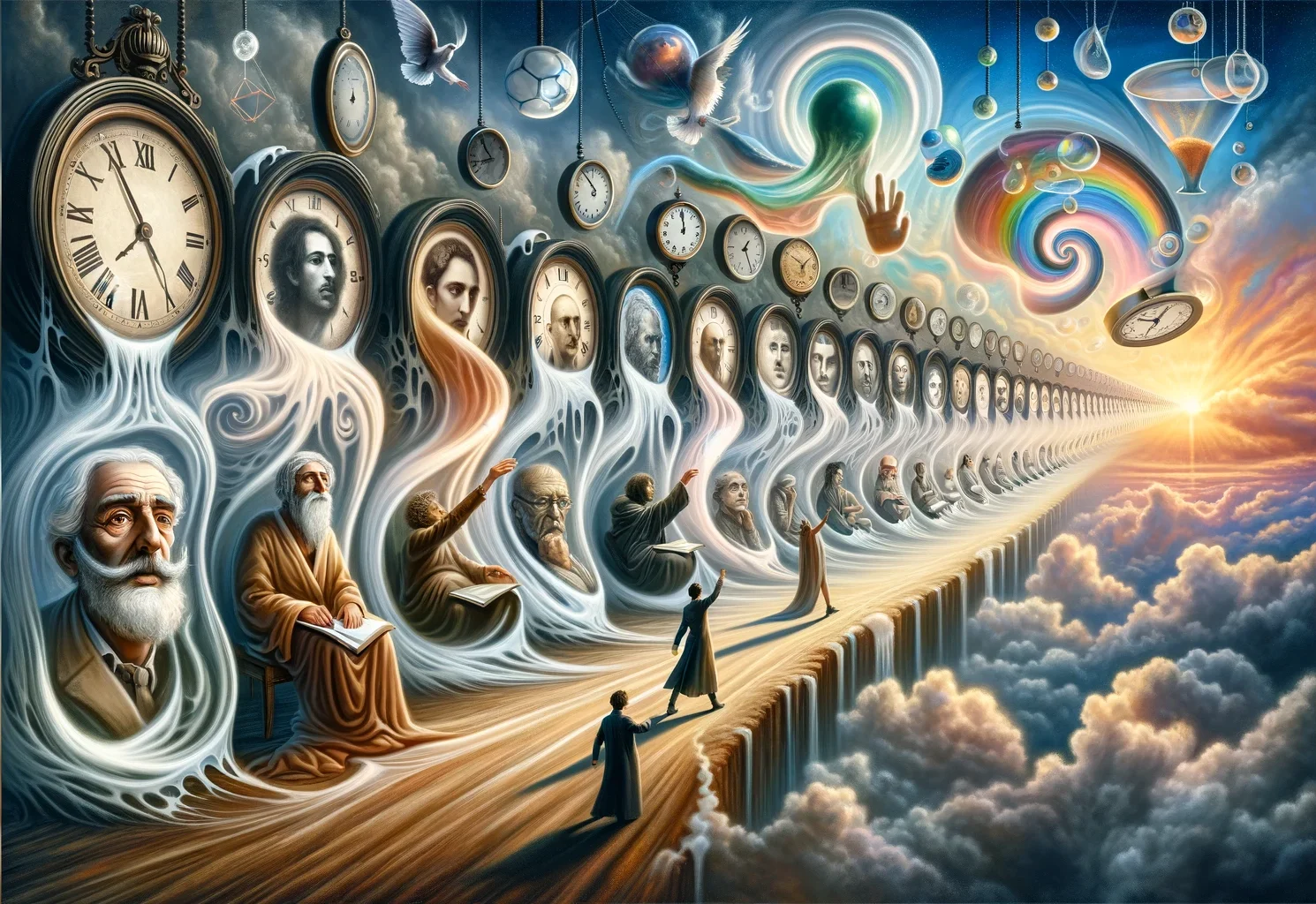In the grand tapestry of human history, there exist individuals whose intellectual prowess and innovative spirit have left an indelible mark on the fabric of our understanding. From the ancient wisdom of Aristotle to the groundbreaking discoveries of Isaac Newton, these visionaries have shaped the trajectory of human knowledge, pushing the boundaries of what is thought possible. Yet, as we delve deeper into their lives and beliefs, a nuanced narrative emerges – one that reveals even the greatest minds were not immune to the cultural and temporal context in which they existed.
This phenomenon is exemplified in the strange and problematic beliefs held by some of history’s most revered figures. Nikola Tesla, a pioneer in the field of electrical engineering, believed in the existence of extraterrestrial life.1 Alexander Graham Bell, the inventor of the telephone, advocated for eugenics.2 Martin Luther, a key figure in the Protestant Reformation, made statements anti-Semitic statements and supported the persecution of heretics.3 Saint Augustine, a foundational figure in Christian theology, believed in the concept of “just war” and thought women were inferior to men.4
At first glance, it may seem perplexing that individuals of such immense intellectual caliber could hold beliefs that appear so misguided and even repugnant to our modern sensibilities. However, this paradox is precisely the point. The greatest minds in history were still beholden to their foundational beliefs, contained within the culture and time they existed. Their intellectual genius did not exempt them from the pervasive influence of their societal context.5
This realization is both humbling and liberating. It serves as a poignant reminder that our own beliefs and assumptions are similarly shaped by the cultural and temporal context in which we exist.6 Our understanding of the world is filtered through the lens of our time, and it is only natural that our beliefs will appear quaint, misguided, or even absurd to future generations.
In this light, it becomes clear that our pursuit of knowledge and understanding must be tempered by humility and a willingness to acknowledge the limitations of our own perspective. We must recognize that our beliefs, no matter how deeply held or well-reasoned, are provisional and subject to revision. It is only by embracing this intellectual humility that we can hope to approach the universal truths that transcend the boundaries of culture and time.
What, then, are these universal truths that we should strive to embrace? First and foremost, we must acknowledge that we do not possess all knowledge. There exist higher and smarter powers than us, powers that dwarf our understanding and abilities.7 This recognition should inspire a sense of awe, wonder, and humility, leading us to approach the mysteries of existence with a sense of reverence and curiosity.
Secondly, we must recognize the inherent value and dignity of every human life. We should strive to love our neighbors, the people within our lives that we can impact, without condition or judgment. This love is not predicated on shared beliefs or cultural affiliations but rather on our shared humanity.8
In conclusion, the greatest minds in history were still beholden to their foundational beliefs, contained within the culture and time they existed. We likewise exist within a culture and time that will one day be reevaluated in the lens of generations to come, and they will likewise find our beliefs and ways of thinking dumb and strange. It is only by acknowledging this reality and holding onto universal truths – humility, reverence, and love – that we can hope to transcend the limitations of our own time and culture, and approach the timeless wisdom that has guided the greatest minds throughout history.
- https://radiojove.gsfc.nasa.gov/education/educationalcd/Books/Tesla.pdf ↩︎
- https://gaislandora.wrlc.org/islandora/object/rarebooks%3A118 ↩︎
- https://doi.org/10.1093/acrefore/9780199340378.013.312 ↩︎
- https://www.jstor.org/stable/40014967 ↩︎
- Likewise, it should be stated that we should not hold historical figures to a modern standard of political and cultural correctness. It is important to approach their expressed thoughts in words with nuance and understanding, recognizing that they were products of their time and culture. This article does not intend to hold individuals to modern standards or imply that they harbored beliefs that would be considered unacceptable today, such as antisemitism or sexism. Rather, the goal is to foster a deeper understanding of how the culture and time we live in, impacts the words we choose to use and even our very conception of reality. It is not my goal to perpetuate cancel culture or anachronistic judgments of historical figures. By examining the past with empathy and context, we can gain a richer understanding of human nature and the evolution of ideas. ↩︎
- Is your current favorite TV show the same as the one you were excited to watch 20 years ago? Changes in preferences are more easily understood and accepted, but I will conjecture, our worldview and conception of how the world works likewise changes over time. ↩︎
- Though my words imply a higher power as found in AA (https://en.m.wikipedia.org/wiki/Higher_Power) I would likewise make the conjecture that simply admitting there exists, at some point in time, a being that has a greater intellectual capacity and understanding than yourself, to be a higher power that would fit into this definition. ↩︎
- It is often too easy to allow disagreements to get in the way of love. Some of the most hateful people in the world will show kindness to a puppy. The animal cannot hold or defend systematized beliefs, so an argument filled with hate, cannot be had. We likewise should consider leading with love and kindness, not allowing our systemized creeds and doctrines to get in the way of our humanity. ↩︎
